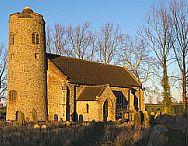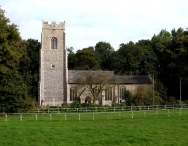We’re delighted you’re thinking of baptism (also known as Christening) for your child. Your child is precious to you and precious to God. At baptism you promise to raise your child to know God loves them, and to help them to follow Jesus as a member of the Church.
Here you will find information relating to baptism including the following:
• What is baptism?
• What happens during the service?
• Making decisions and promises
• Symbols and actions used during the service
• The role of godparents
• Thanksgiving
• Frequently Asked Questions
What is baptism
In baptism, you as parents are: thanking God for his gift of life, making a decision to start your child on the journey of faith and asking for the Church’s support.
For your child, baptism marks the start of a journey of faith, which involves turning away from all that is evil, turning towards Christ and becoming a member of the local and worldwide Christian family.
Baptism is a ‘sacrament’ a visible sign of God’s love. In baptism, we are thanking God for his gift of life and publicly acknowledging his love. We are acknowledging that we all need to turn away from selfishness and evil and to accept God’s offer of a new start.
What happens during the service?
Your child’s baptism will normally take place during the main Sunday service. This is so that your child can be seen to be joining the family of the Church and be welcomed into membership. In turn the Church will promise to support and pray for you and your child.
The Rector will make sure you know where to sit and when you need to move. Some parts of the service will be for the whole congregation to join in, some will be for you and the godparents.
Part of the baptism service will normally take place at the front of the church, but for the baptism itself, parents and godparents are usually asked by the priest to gather around the font. (The font is a large basin on a pedestal, containing the water for baptism.)
The priest will ask the parents and godparents to make declarations on behalf of the child (see Making decisions and promises).
Making decisions and promises
When you bring your child for baptism, you will be asked to declare publicly on behalf of your child that you believe in God and that you will bring your child up to follow Jesus.
You will be asked to answer, on your child’s behalf, that you have decided to turn away from everything which is evil or sinful and instead to turn towards Christ.
The declarations made by you and the child’s godparents will be made in front of the church congregation; the local Christian community will promise to support you and pray for you and your child.
Symbols and actions used during the service
A number of important symbols and actions will be used during the service itself:
• The sign of the cross – the priest will make the sign of the cross on your child’s forehead. This is like an invisible badge to show that Christians are united with Christ and must not be ashamed to stand up for their faith in him.
The priest says:
Christ claims you for his own.
Receive the sign of his cross.
Do not be ashamed to confess the faith of Christ crucified.
The priest may also invite you and the godparents to sign the cross on the child’s forehead after he or she has done so.
• Water – the priest will pour water on your child’s head. Water is a sign of washing and cleansing. In baptism it is a sign of being washed free from sin and beginning a new life with God.
Water is a sign of life, but also a symbol of death. When we are baptized, it is as though our old life is buried in the waters (like drowning) and we are raised to new life with Christ.
The priest says:
May God, who has received you by baptism into his Church,
pour upon you the riches of his grace,
that within the company of Christ’s pilgrim people
you may daily be renewed by his anointing Spirit,
and come to the inheritance of the saints in glory.
• The welcome – the church congregation will say some formal words of welcome to acknowledge that your child has joined the Church and to show how pleased they are to have you among them.
• Candles – Jesus is the Light of the World. A large candle will be lit in the church and you will receive a lighted candle at the end of the service as a reminder of the light which has come into your child’s life.
It is up to you, the child’s godparents and the church community to help your child reject the world of darkness and follow a way of life that reflects goodness and light and shares this light with others.
The role of godparents
Godparents make the same promises on behalf of the child being baptised as the parents do. Godparents promise to pray and support the child and to help the parents to bring up the child in the Christian faith. It is an important and responsible role.
It is good to have three godparents: traditionally two of the same sex as the child and one of the opposite sex. Godparents can be family members or friends. However, it is important that you choose people who will take an interest in your child’s spiritual welfare and who will pray for you and your child. Godparents must themselves be baptized, and should also be confirmed.
Thanksgiving Service
You may wish to ask your parish priest about having a service of Thanksgiving for the Gift of a Child. In this service, you thank God for the gift of your child and the child is blessed. You do not make the same promises as in the Baptism service.
If you choose to have a Thanksgiving, you may also have a Baptism service for your child at a later date.
Frequently asked questions
Q. What’s the difference between a baptism and a christening?
A. None, they are just different words for the same thing.
Q. Can we have a private service of baptism?
A. Baptisms usually take place in the church’s main service, because they are a public declaration that your child has become part of the church family. It is important that the church congregation is there to support you and welcome your child. However, if personal circumstances make this difficult, talk to the Rector.
Q. What is the right age for baptism?
A. Baptism can happen at any age. What matters is that those concerned are committed to bring up a child as a Christian. Teenagers and adults may also be baptized. This is celebrated with confirmation by the Bishop. You can only be baptised once, but there are ways of renewing your Christian commitment publicly as an adult – ask the Rector.
Q. I’m not a regular churchgoer. Can I still have my child baptised?
A. Yes. The Church believes that God’s love is available to all, regardless of their background. The Rector can talk you through the options: you might prefer to have a Thanksgiving service first and then consider baptism when you have had time to talk through what is being asked of you. You may also wish to find out more about the Christian faith and what joining the Church involves before you make a decision about baptism. The Rector can give you guidance.
Q. What does it cost?
A. A Baptism service is free as it celebrates God’s gift of life (priceless).




